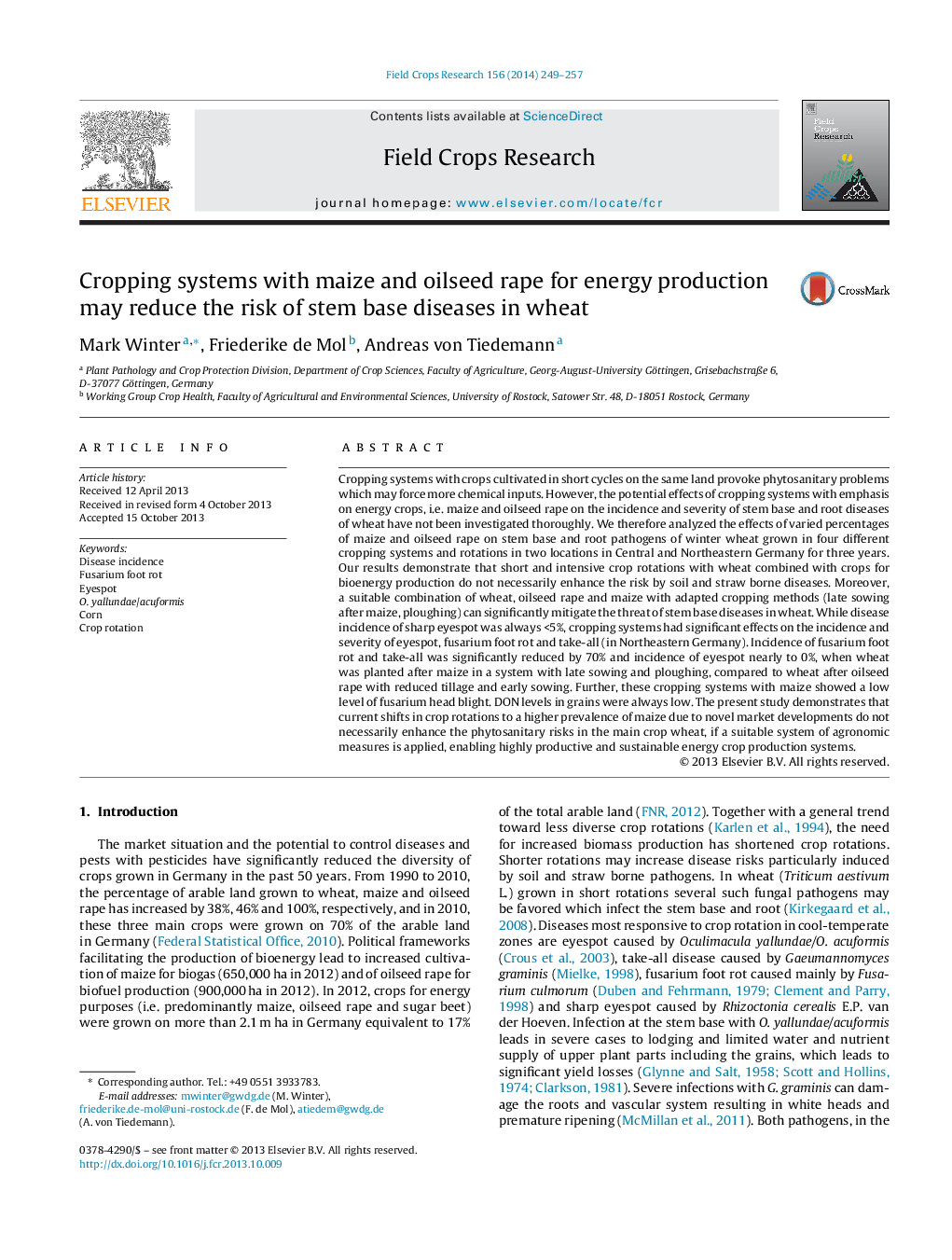| کد مقاله | کد نشریه | سال انتشار | مقاله انگلیسی | نسخه تمام متن |
|---|---|---|---|---|
| 6375134 | 1624707 | 2014 | 9 صفحه PDF | دانلود رایگان |
عنوان انگلیسی مقاله ISI
Cropping systems with maize and oilseed rape for energy production may reduce the risk of stem base diseases in wheat
ترجمه فارسی عنوان
سیستم های برداشت با ذرت و روغن زیتون برای تولید انرژی ممکن است خطر ابتلا به بیماری های پایه در گندم را کاهش دهد
دانلود مقاله + سفارش ترجمه
دانلود مقاله ISI انگلیسی
رایگان برای ایرانیان
کلمات کلیدی
موضوعات مرتبط
علوم زیستی و بیوفناوری
علوم کشاورزی و بیولوژیک
علوم زراعت و اصلاح نباتات
چکیده انگلیسی
Cropping systems with crops cultivated in short cycles on the same land provoke phytosanitary problems which may force more chemical inputs. However, the potential effects of cropping systems with emphasis on energy crops, i.e. maize and oilseed rape on the incidence and severity of stem base and root diseases of wheat have not been investigated thoroughly. We therefore analyzed the effects of varied percentages of maize and oilseed rape on stem base and root pathogens of winter wheat grown in four different cropping systems and rotations in two locations in Central and Northeastern Germany for three years. Our results demonstrate that short and intensive crop rotations with wheat combined with crops for bioenergy production do not necessarily enhance the risk by soil and straw borne diseases. Moreover, a suitable combination of wheat, oilseed rape and maize with adapted cropping methods (late sowing after maize, ploughing) can significantly mitigate the threat of stem base diseases in wheat. While disease incidence of sharp eyespot was always <5%, cropping systems had significant effects on the incidence and severity of eyespot, fusarium foot rot and take-all (in Northeastern Germany). Incidence of fusarium foot rot and take-all was significantly reduced by 70% and incidence of eyespot nearly to 0%, when wheat was planted after maize in a system with late sowing and ploughing, compared to wheat after oilseed rape with reduced tillage and early sowing. Further, these cropping systems with maize showed a low level of fusarium head blight. DON levels in grains were always low. The present study demonstrates that current shifts in crop rotations to a higher prevalence of maize due to novel market developments do not necessarily enhance the phytosanitary risks in the main crop wheat, if a suitable system of agronomic measures is applied, enabling highly productive and sustainable energy crop production systems.
ناشر
Database: Elsevier - ScienceDirect (ساینس دایرکت)
Journal: Field Crops Research - Volume 156, 1 February 2014, Pages 249-257
Journal: Field Crops Research - Volume 156, 1 February 2014, Pages 249-257
نویسندگان
Mark Winter, Friederike de Mol, Andreas von Tiedemann,
